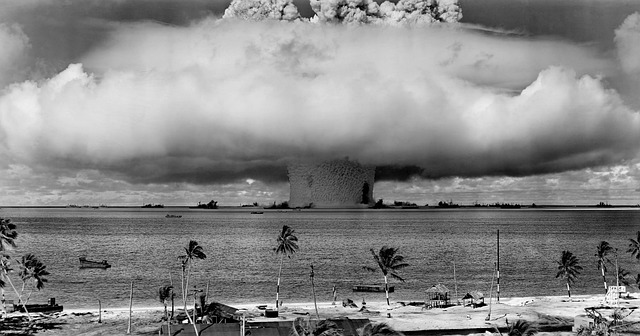(from the Blog of the Alphonsian Academy)
We have asked some renowned moral theologians from various backgrounds, united by friendship with the Alphonsian Academy, to write a commentary on Pope Francis’ text, Fratelli tutti, nn. 256-262, on a highly topical theme: The Injustice of War. Here we present the third contribution in the series.
In Fratelli tutti (FT), there are two concrete moral issues that represent a radical change in the approaches of Catholic Moral Theology: the double affirmation of the immorality of both the death penalty and war (FT, no. 255-270). The first immorality had already been advanced in the correction of the Catechism of the Catholic Church. I will try to underline the significance of the immorality of war.
Background
The thought of Pope Francis is situated in the trajectory marked by certain magisterial texts and by a specific theological-moral reflection immediately preceding them.
Among the magisterial texts, the following should be highlighted: 1) The affirmation of Vatican II: the present situation “obliges us to examine war with a completely new mentality” (Gaudium et Spes, n. 90). 2) The lament of John XXIII: “It is irrational (alienum est a ratione) to think that war is now a suitable instrument for restoring violated rights” (Pacem in Terris, n. 127).
As far as theological-moral reflection is concerned, it is worth highlighting the change in a theological-moral tradition that a powerful current of Catholic theological-moral thought has proposed on war, especially in the Italian linguistic sphere, whose leading exponents have been E. Chiavacci (1926-2013) and L. Lorenzetti (1931-2018).
The central double affirmation
On the one hand, Pope Francis denies the validity of the historical justification of just war, a paradigm that “today we no longer uphold” (FT, note 242), as well as the “supposedly humanitarian, defensive or preventive excuses” (FT, n. 258). This statement includes all the paradigms that purport to justify war as a means of redressing grievances.
On the other hand, it demands that the World Authority be accepted as “the obligatory point of reference for justice and a channel of peace” (FT, n. 257). This requires compliance with the Charter of the United Nations, “a true fundamental legal norm” (ibid.). For our part, we would add that this requires: 1) the disappearance of the UN Security Council as the “legitimising” organ of war; 2) consequently, the disappearance of the international legal institute of “legitimised war”.
On nuclear weapons (also: chemical and bacteriological)
The Second Vatican Council condemned the use of nuclear weapons but refrained from condemning their possession. The same was done during the Cold War period by the episcopates of Germany (18-IV-1983), the United States of America (3-V-1983) and France (8-XI-1983).
Pope Francis also had the intellectual courage to condemn the possession of nuclear weapons. In his speech at the Peace Memorial in Hiroshima (24 November 2019), he said: “The use of atomic energy for the purpose of war is immoral, just as the possession of atomic weapons is immoral, as I said two years ago”.
Consequently, he also called for the conversion of the arms industry into an effective service for economic development, thus supporting the orientation proposed by Paul VI in the encyclical Populorum Progressio (n. 51).
I end this brief presentation by highlighting two graphic phrases: “In our world, there are no longer just “pieces” of war in one country or another, but a “world war in pieces”, because the destinies of countries are strongly connected to each other on the stage” (FT, n. 259); “Every war leaves the world worse off than it was before” (FT, n. 261).
Fr. Marciano Vidal, C.Ss.R.
A former professor at the Pontifical University Comillas (Madrid), the Higher Institute of Moral Sciences (Madrid) and the Alphonsian Academy (Rome).






